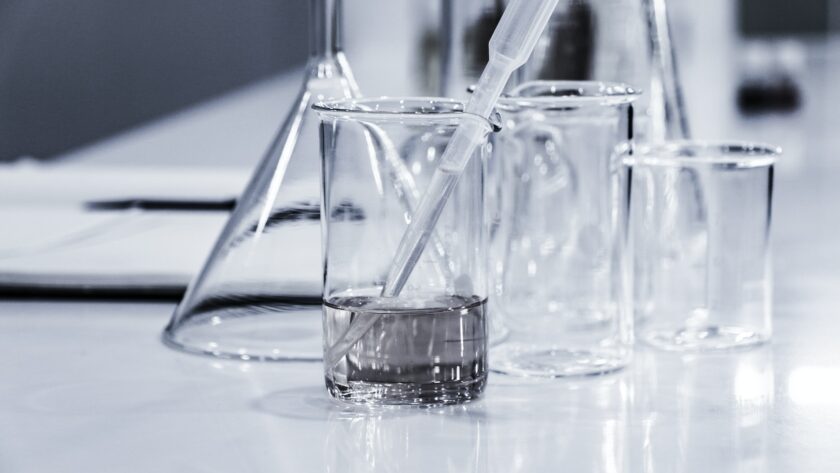Opening your own clinical lab is no small task. From supplies and equipment to staff and personnel, there are a lot of considerations to make. You’ll also need to decide what your lab is going to be dedicated to – from researching new drugs, to Target Enrichment, there are so many things to choose from, all of which will mean you can potentially really make a difference to the world of medicine. Fortunately, with effective planning and budgeting ahead of time, you can get your own clinical lab up and running. To start off on the right foot, here are steps that will help guide you through the setup process:
Contents
Create a business plan
Starting a clinical lab is an exciting venture, but it’s also one that requires guidance from experienced professionals. Creating a business plan for your clinic should include identifying the type of tests you will offer, gathering necessary resources and staff, determining to price for services, and strategizing marketing plans to reach local customers.
A good plan will also consider suppliers who can provide the materials you need to run your lab efficiently, use of specific software like pathology LIS software from NovoPath, any legal or licensing requirements relevant to opening a clinic, and ways to set yourself apart from the competition in your area. With a detailed business plan in place, you’ll be ready to launch your successful clinical lab in no time.
Obtain proper licenses and certifications
Opening up a clinical lab is an exciting opportunity, but it requires a great deal of preparation and investment. Acquiring the proper licenses and certifications should be the first step in getting your business plan off the ground.
Depending on the scope of services that you offer, there are a variety of licenses and certifications to consider; from hiring/supervising correct personnel and examining types of equipment needed to pass safety regulations.
These can be difficult hurdles to jump through when starting a lab, but with dedication and hard work, you can make sure that your new venture hits all legal requirements for government standards.
Secure funding
One of the most vital steps in starting a clinical lab is finding the financial means to fund it. After determining the necessary start-up costs, the first step to securing capital is tapping into one’s own financial resources. This could include liquidating current investments, transferring funds from other businesses, or earning income from additional sources.
Doing so can provide initial funding for essential expenses such as purchasing equipment and covering payroll for staff members. For additional funds, there are options such as applying for private investor loans and seeking out grants that have either limited criteria or are mainly focused on certain types of labs. Having a clear business plan can help to give prospective funders confidence and make your vision appear achievable.
One way to develop an effective plan is doing research so that you have an understanding of what potential investors would expect when looking at your venture. With proper planning and preparation, you’ll be able to put together a strong pitch that will make acquiring funding much easier.
Invest in a laboratory billing system
Investing in a laboratory billing system for your own clinical lab is an important step in running a successful business. The right system should offer you streamlined billing processes and will help you take control of the financial side of operations.
It will organize patient information, maximize collections, and provide accurate reporting capabilities so that anything related to billing is efficiently handled. In addition to financial stability, investing in a suitable laboratory billing system can boost morale within the staff as they will know their home health environment is up-to-date with the latest technology. Take the time to research your options and pick the right system for your specific needs; you won’t regret it!
Purchase supplies and equipment
Starting up your own clinical laboratory is an exciting venture, but it’s important to remember that you will need the right supplies and equipment from Genie Scientific or other reputable supplier that you know. It’s wise to be diligent about researching prices for these items so that you get the best value for your money.
From microscopes and centrifuges to LabTAG cryogenic labels, reagents and latex gloves, there are many things to consider before making large purchases. It pays dividends, in the end, to take your time comparing different vendors and studying product reviews. With careful planning, you will be able to acquire everything necessary to make the dream of owning a lab a reality.
Set up appropriate communication structures
Setting up the appropriate communication structures when opening a clinical lab is essential for its success. Keeping information updated and accessible for the staff and making sure the customer knows what to expect are two key components of a successful communication structure.
When considering how best to communicate, be sure to use reliable resources such as phone calls, emails, text messages, or even in-person visits. It’s also important to have clear expectations in place, so everyone knows their role and responsibilities.
Additionally, provide your staff with proper training on how to respond to customers as well as safety rules they need to follow while working in the lab. With these patterns of communication in place, you will be setting yourself up for success in your new clinical lab!
These steps will ensure that when you open the doors to your lab for business all the important boxes have been checked off!




